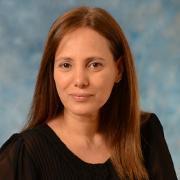Accounting
Research in the area of accounting at Tel Aviv University focuses on the relationship between financial information and the value of securities in the capital markets, and the connection between financial information and operational decision making by firms. Many of these studies make use of empirical research methods, particularly econometric analysis of the relationships between financial data and data from the capital markets. Other studies focus on the theoretical mathematical analysis of economic issues relating to the flow of information in capital markets. The focus on the relationship between financial information and the activity in the capital markets and within the firm is the connecting thread of accounting research, in relation to research in economics and in finance.
There are several different strands of research in accounting at Tel Aviv University. One strand examines the effect of the publication of financial information by the firms on the prices of securities. An example of such research is the analysis of the influence of news of cyber attacks on the stock prices of firms suffering the attacks. Another study tries to measure the level of accuracy of the information contained in stock prices. Here, the researchers construct a measure of the accuracy of the prices of securities on the stock exchange with which they examine whether more accurate information causes a drop in the firm’s price of capital. In addition, the researchers examine whether accuracy of the prices of securities is influenced differently than positive information and negative information.
This strand also includes theoretical mathematical studies dealing with the way in which information flows to the capital market from different sources, the way in which it is distributed among the different players in the market, and the way in which it affects the trading in the market. Most of the studies are based on analytical analysis and use game theory to design and solve the models that describe the strategic connections among the various players in the capital market.
A second strand includes studies that try to understand how operational decisions (such as R&D investments, choice of a production technology or a decision concerning the level of the firm’s inventory) affect the internal and external accounting reports. These studies are based on micro economic theory and on econometric analysis. The contribution of these studies is in highlighting the usefulness of the accounting information in operational decisions and in the understanding they provide concerning the impact of operational decisions on the reported performance level of the firm.
A third strand examines the influence of accounting regulation on managers’ decisions. For instance, theoretical studies examine the relationship between the extent of regulation in the capital market and the total amount of information available to investors. The researchers identify situations in which mandatory disclosure of information by firms will in fact diminish the total amount of information available to the investors. An empirical study shows that new accounting regulation on issuing options to employees caused a drop in the issuing of options to managers, which led the managers to reduce the operational risk of the firm.
Once a week leading researchers from Israel and abroad present their work at a seminar. Once a year, a conference is held hosting scholars of international repute who present the latest research in the area.
Faculty
|
Full Professor Max and Steffi Perlman Professor of Financial Economics
|
Full Professor, CPA TAU Capital Markets and Financial Institutions Chaired Professor Head of the Fintech track in the MBA program |
Full Professor Maurice and Gertrude Deutch Professor of Finance and Accounting |
|
Full Professor Head of Raaya Strauss Center
|
Associate Professor Head of Accounting Department
|
Senior Lecturer |
|
Clinical Senior Lecturer
|
Clinical Senior Lecturer
|
|











